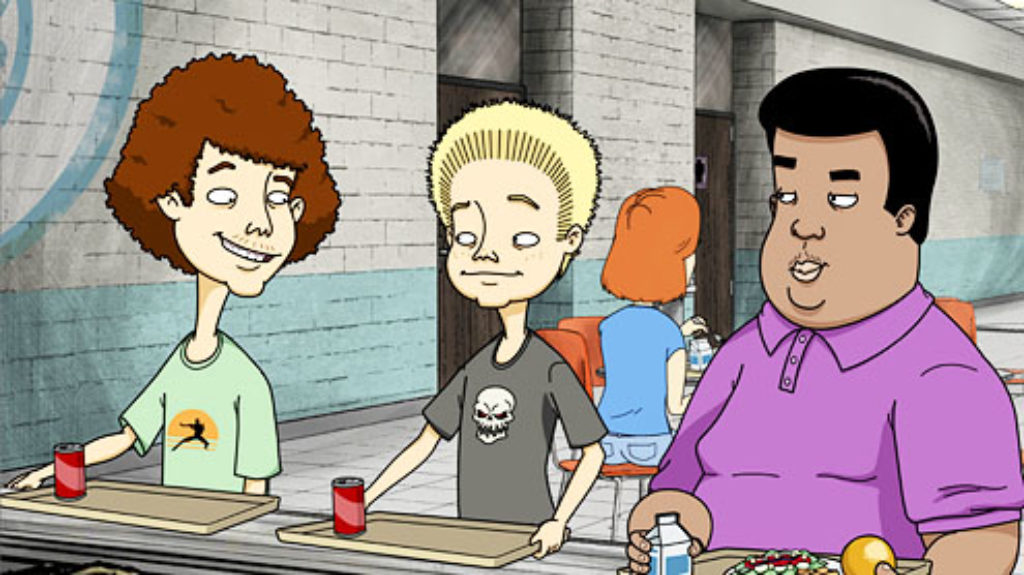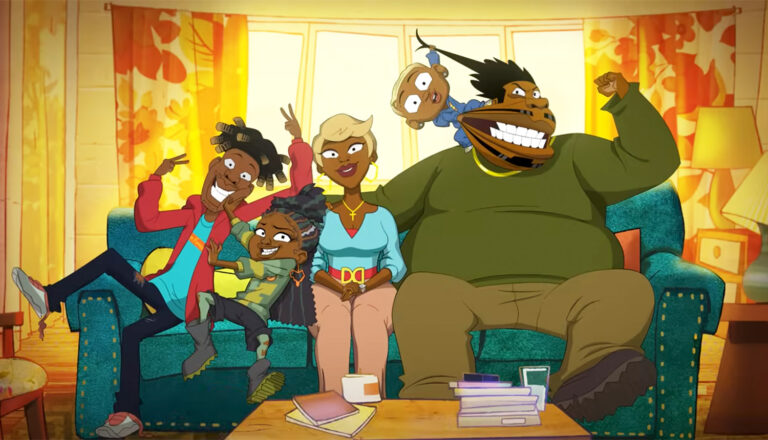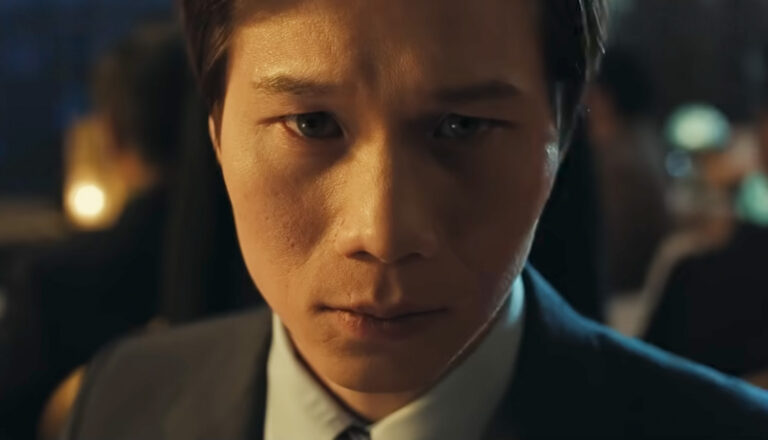
Frieren: Beyond Journey’s End
An elf mage contemplates on connection and regret as she watches her human friends grow old and pass away.

Unsupervised is, in a twisted sort of way, a Plugged In type of show.
Oh, not that you should watch this FX animated comedy. It’s quite possible your eyeballs might melt if you did. Unsupervised has more sex, violence, profanity and bad behavior per minute than perhaps any other show on television (Jersey Shore, naturally, excepted). Its title may, in fact, refer to its obviously unfettered writers.
But here’s the thing: You know that we tend to harp on themes of family and togetherness. We tell you how important it is to eat dinner with your kids and pore over their entertainment choices and teach them the proper way to floss. (Well, OK, we don’t talk that much about flossing, but it’s still important.) And all the while, there’s a cautionary story lurking in the back of our minds. This stuff’s important, we say, because if you don’t spend time with your kids—if you don’t love them and nurture them and correct them when they’re out of line, they could turn out like … like …
Well, like the kids in Unsupervised.
Gary and Joel indeed lack any meaningful supervision. Largely deserted by their parents, these two students of Maynard High School have been left to raise themselves—and they don’t do a very good job of it. They subsist on spray cheese. They stay up far too late. They throw ill-advised parties that earn the show’s TV-MA rating (and maybe even push it). They certainly don’t regularly floss.
And here’s the twist in the twisted part of this show: Gary and Joel don’t want to be bad kids. They’d really like to be the good guys—but they don’t have anyone around to show them how. And that makes Unsupervised strangely daring.
All comedies, of course, can easily slide into problematic territory. That’s because stuff can somehow seem more funny when it goes against accepted norms or morals. Homer and Bart, for instance, are funny on The Simpsons because most of what they do is, well, fairly unthinkable for many of us. Marge, on the other hand, only gets the comedic spotlight when she does something that goes against her straight-laced character traits—and if it involves breaking the law, well, so much the better (for the ratings, anyway).
But Unsupervised takes us to a place where the accepted ethos is almost universally horrible. Most of Gary and Joel’s peers are borderline thugs. The baseball coach tells the team that they’re a pretty sorry bunch of dolts—then retreats to his car, where he apparently lives. Here, there are no accepted morals, no real societal standards. The norm? It’s to give up and drop out.
That makes Joel and Gary the exact opposite of Bart: They break the rules by trying to find out what they are … and following them. They’re buoyantly optimistic—objects of ridicule because they want to do the right thing. They want to be good in a bad, bad world. But because they have no clue how to be good, their best efforts consistently turn into disasters.
An example: Gary and Joel want to try to stop an impending fight between Maynard High and a cross-town rival. So the two sneak into the school after hours and paper the walls with inspirational—and obscene—messages. “Violence isn’t the g‑‑d‑‑n answer!” one reads.
The moment is true to the character of these self-raised kids: Without guidance (but with plenty of access to cable television), they don’t have the wherewithal to grasp what’s acceptable behavior. And it’s an all-too-real storyline for many of our youth today.
Whatever meta-statement Unsupervised hopes to make, though, gets mugged by the content—much of it needless and cheap. Tim Goodman of The Hollywood Reporter thinks the show’s writers regularly abuse its liberal rating and late-night timeslot without reason: “It’s like swearing, boner jokes, sex riffing and, well, the whole box of hammers, explodes from the show simply because the writers can get away with it, not because any part of it is funny. Which it’s not.”
He’s right. This show isn’t funny. It’s just kinda … sad.
Still, Gary insists, “No matter how negative life gets, you still gotta make positive choices.”
You know what? He’s right too. And not watching this show might be a good place to start.
“Field of Dreams … and Dogs”
Joel and Gary, on the lookout for good role models, become managers for the Maynard High baseball team—cleaning up used condoms and dealing with a vicious dog. Maybe they’re the best role models around, though, because when an upcoming game looks like it’ll lead to a huge fight, they’re the only ones who try to stop it.
Alas, papering the premises with profanely uplifting slogans gets them an in-school suspension. The dog gets graphically “raped” on the baseball diamond by another beast. And the fight turns out to be inevitable—with a one-eyed participant losing his remaining eye to a flying bottle. (Animated blood gushes.) People get beaten, hit by baseballs and tied up.
A guy vandalizes the school to impress the tough kids who’ve been relentlessly bullying him. He asks Joel to inspect his privates for rope burns, carries around a stolen skull and is given “mind pills.” Gary talks about how his dad spends his days drinking on the porch. An African-American student thinks he’s being discriminated against by an African-American coach. Kids disrespect authority figures.
We see and hear several crude sexual jokes. Teens kiss and squeeze backsides. There are about 25 (unbleeped) s-words during the half-hour episode, along with “a‑‑,” “d‑‑n,” “b‑‑ch,” “p‑‑‑y,” “h‑‑‑” and “d‑‑k.” God’s name is repeatedly abused, and there were countless uses of the f-word stand-ins “freaking” and “frigging.”


Paul Asay has been part of the Plugged In staff since 2007, watching and reviewing roughly 15 quintillion movies and television shows. He’s written for a number of other publications, too, including Time, The Washington Post and Christianity Today. The author of several books, Paul loves to find spirituality in unexpected places, including popular entertainment, and he loves all things superhero. His vices include James Bond films, Mountain Dew and terrible B-grade movies. He’s married, has two children and a neurotic dog, runs marathons on occasion and hopes to someday own his own tuxedo. Feel free to follow him on Twitter @AsayPaul.

An elf mage contemplates on connection and regret as she watches her human friends grow old and pass away.

Netflix takes a classic sitcom, Good Times, and turns it into a vulgar, violent, sexually-charged TV-MA show.

While its protagonist might live a nuanced life, The Sympathizer’s problematic content can’t be described the same way.